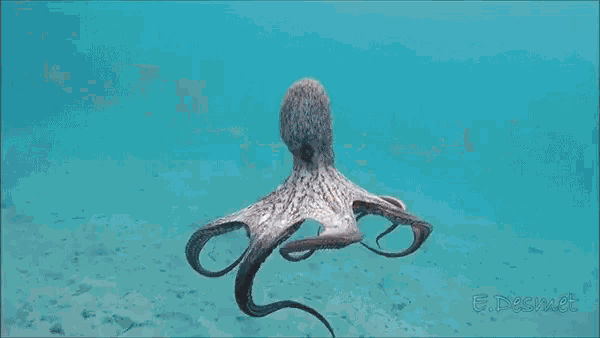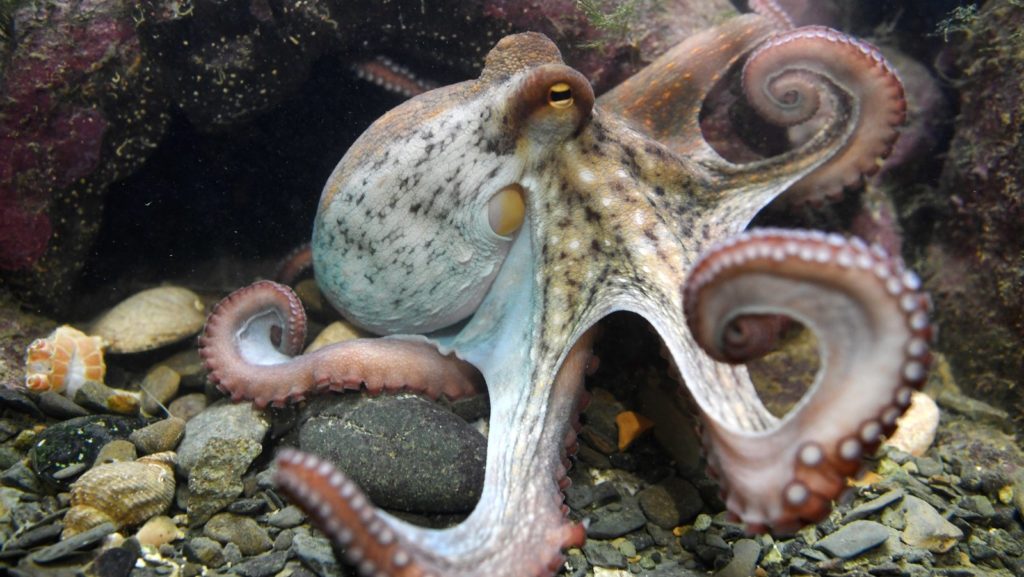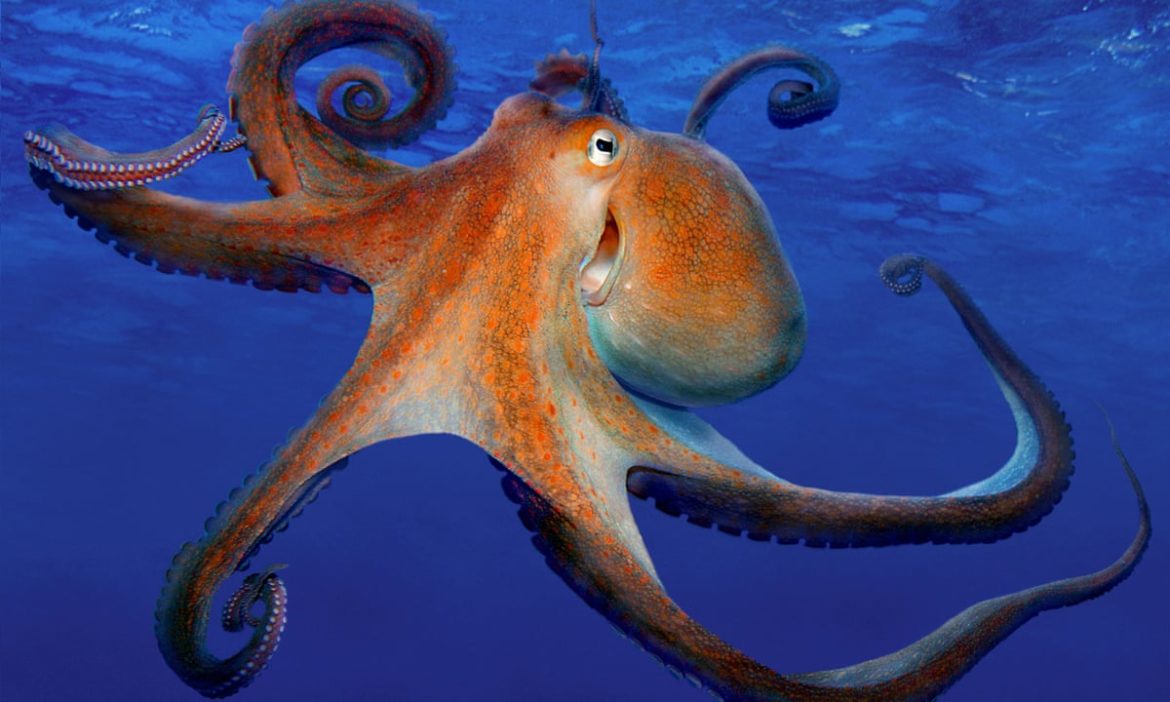The octopus, not only known as ocean creatures with eight arms and bulbous heads, sex for them is a death sentence. Some other fun facts to know….
The following written content by Alina Bradford

Octopuses are ocean creatures that are most famous for having eight arms and bulbous heads. Some other fun facts: They have three hearts and blue blood; they squirt ink to deter predators; and being boneless, they can squeeze into (or out of) tight spaces. They are quite intelligent and have been observed using tools.
And sadly, for them, sex is a death sentence.
Description
The order Octopoda includes 289 species, according to the World Animal Foundation. The word also refers specifically to animals in the genus Octopus. The word octopus comes from the Greek, októpus, which means “eight foot,” according to a Smithsonian magazine article that summarized facts in Katherine Harmon Courage’s book, “Octopus! The Most Mysterious Creature in the Sea.”
Some people call their appendages tentacles, but that is incorrect; they are arms. Most octopus species have suction cups on the bottom of each arm. The arms seem to have a mind of their own. In fact, two-thirds of an octopus’ neurons are in its arms rather than its head, according to the article. That means that an octopus can focus on exploring a cave for food with one arm while another arm tries to crack open a shellfish.
Some octopuses even have warts. Two deep-sea octopuses in the Graneledone genus — G. pacifica and G. verrucosa — have skin bumps dotting their pink-hued mantles. These warty protrusions, it turns out, can be used to distinguish the two species, which have been incredibly difficult to tell apart. Scientists reporting June 7, 2017 in the journal Marine Biology Research catalogued the distribution of warts on both species, pinpointing two variables that were consistent across the individuals within a given species: distance between the warts and the tip of the mantle and the extent to which the skin bumps spread down the creature’s arms.

Octopuses have an excellent sense of touch, according to the World Animal Foundation. Their suckers have receptors that enable an octopus to taste what it is touching.
Most octopuses — those in the suborder Incirrata (or Incirrina) — have no internal skeletons or protective shells. Their bodies are soft, enabling them to squeeze into small cracks and crevices, according to National Geographic. In April 2016, an octopus at the National Aquarium of New Zealand squeezed out of its tank and made an eight-armed dash for a drainpipe that — luckily for him — led directly to the sea.
A bulbous sack-like body, or mantle, is perched on top of an octopus’ head. The only hard part of their bodies is a sharp, parrot-like beak that is on the underside, where the arms converge. Octopuses have powerful jaws and venomous saliva, according to National Geographic. Read more from Live Science.
Stay informed daily. unbiased news fair and balanced, ahead of influence.




